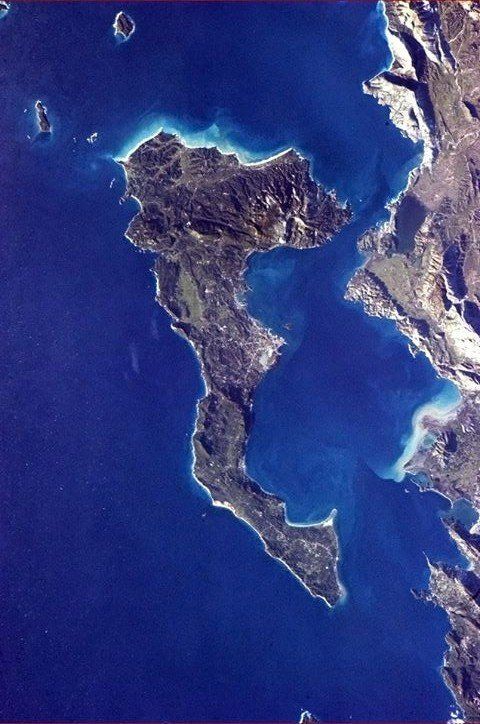Atalanta and Hippomenes - Part 1
- by Costis Panaretos
- •
- 09 Mar, 2019
- •

Atalanta was a beautiful maiden, feral and free from human etiquette. This was because she, as a new-born babe was suckled and raised by a bear. Impossible you might say, but Moros – the deep fate that determines all – had other plans when she was abandoned by her King father and Queen mother on the flanks of Mt Parthenion. The baby girl grew to be a wild and swift forest creature and when she was taken in by a group of hunters, she mastered the arts of tracking, trapping and hunting. She developed an unmatched skill using spears, bow and arrow, slings and even rocks. It was only natural to become a devotee of Artemis, the goddess of Hunting and Chastity.
The Arcadian King Scoeneus, the cold-hearted father who, many moons ago, had abandoned her to die on the mountain, was now desperately asking her to come back. He had not been able to father another child and he was increasingly fearful that his end would come faster if he didn’t have a successor to protect him. And what a protector! Atalanta was more capable than any man, she was stronger and faster and wittier and on top of that, she had his own blood running through her veins. She was the perfect candidate. Almost perfect. Atalanta had clearly and strongly declared that she would never marry. King Scoeneus was trying to puzzle out how it was possible to have a successor if she wouldn’t get married.
‘’ I’ll be the Queen and Ruler of the land’’ she proclaimed.
King Scoeneus tried to portray the benefits of marriage, the companionship, the sharing of responsibilities and housework. To strengthen and expand the kingdom via alliances.
‘’ I’m devoted to Artemis, the Queen of the forests and mountains. I have vowed to never be married, to never lay next to a man till the end of my days’’ she declared.
The Arcadian King talked to his wife and asked her to do something about her daughter. The Queen mother approached Atalanta in the best possible motherly way - despite the minor incident that involved a flank of a mountain and a bear - and talked to her about the virtues of a union between a woman and a man. Atalanta couldn’t disagree more with what her mother was saying but something inside made her to take a step back from her resoluteness.
‘’Ok Mother, I’ll get married if you wish’’ muttered Atalanta and at the same time she was trying to understand why she said what she said, ‘’but under one condition!’’ she added ‘’I will only marry the man who can run faster than me. This kind of man will be worthy to become my husband’’. Now she felt a bit better.
‘’And any suitor who takes the challenge and fails, dies!’’ she snapped straight after.
You would think that with this last clause Atalanta would
have it easy. That she wouldn’t have to run races all day long and only on a few
exceptions would she have to do her stretches, when desperate or arrogant men
appeared to challenge her.
But Atalanta was an astonishingly beautiful woman. It wasn’t just her long
hair, olive skin and the few and necessary piece of leather that covered her
body. It was her powerful eyes thirsty for adventures, her perceptive senses
that felt like they were amazingly responsive to stimuli, that even the leaves
on trees would stop shaking in the breeze so as not to wake her from her
mid-day nap.
Many good - and some not so good – lads died trying to win the race. Atalanta was so fast that not even one challenger was able to finish in sight of the finishing line. They all accepted their fate with a sense of humiliation and that arrogance made Atalanta feel better about the fact that they were losing their lives. But one day, a young man appeared in front of Atalanta. His name was Hippomenes.
‘’I’m in love with you Atalanta and I want to be with you’’ he said firmly and softly.
‘’How he dares this man, this handsome
man, to appear in front of me with such a definite
presence’’ Atalanta thought to herself. ‘’ I’ll show him tomorrow!’’ she
determined once she had accepted the challenge.
‘’what a pity’’ she heard the echo of her inner mind chanting at the same time.
to be continued..

Bear in mind that Greece is currently on the UK’s amber list for travel, meaning that passengers from Greece have to self-isolate at home for 10 days on arrival back in the UK.
What vaccination proof do I need to travel to Greece?
Greece is open to fully vaccinated Brits, so visitors need to prove that they’ve had both doses of an approved jab at least 14 days before travel. The type of proof varies based on which nation of the UK you’re a resident in:
- England: citizens can prove their status using the NHS app, or a written letter. You can’t get proof of vaccine from your GP. Instead, you should request it by phoning 119
- Scotland: download a vaccination status letter from the NHS Inform patient portal, or request it by post via the Freephone Covid Status Helpline on 0808 196 8565
- Wales: request a certificate by calling 0300 303 5667. Note that it can take up to ten working days for a certificate to arrive. The Welsh Government is currently in talks with the UK government to allow Welsh citizens to use the NHS app for proof of travel
- Northern Ireland: the Northern Ireland Executive is currently developing a vaccine certification programme for its citizens.
You can’t use your appointment letters as proof of vaccination. You must either use a written letter from the NHS, or a digital product such as the app.
What vaccinations does Greece accept?
Greece is open to anyone who has had one of the vaccines approved by the European Medicines Agency (EMA). This includes the four vaccines approved for use in the UK: BioNTech and Pfizer, Moderna, AstraZeneca and Johnson & Johnson.Do I still need a test before entering Greece?
No. If you’ve had both doses of an approved vaccine, you won’t need to produce a negative test result. Note that arrivals may be asked to undergo a rapid COVID-19 test on arrival. This is determined at random, based on the QR code on the back of your PLF. If you’re selected, you will need to isolate until the results come in: this can be up to 24 hours. If you test positive, you and your party will need to isolate for at least 10 days in an approved quarantine hotel. The cost of this is covered by the Greek state.Are there other travel restrictions in place?
Yes. Although Greece is open to vaccinated visitors, there are a few extra preparations. In addition to bringing your proof of vaccination – or negative test result – you will also have to:
- Fill in a Passenger Locator Form (PLF) before travel. You need to do this before you enter and again before you leave the country
- Wear a face mask while on a plane, bus, train or ferry travelling to, from or around Greece. You also need to keep your mask on at the airport
- Comply with all instructions given by the Greek authorities.
Do I need to quarantine when I get back to the UK?
Yes. Greece is currently on the amber list for travel, which means that there are travel restrictions in place upon your return. Before you come back from your trip to Greece you should:
- Take a COVID-19 test within 72 hours of your flight, even if you’re vaccinated
- You need to make two COVID-19 tests, once you arrive in the UK. One will be on Day 2 and the other one on Day 8 after your arrival
- Complete a passenger locator form (PLF).
Once you arrive in the UK, you will need to:
- Quarantine at home or in your accommodation for 10 days.
- Take a COVID-19 test on or before day two, and again on or after day eight.
- If you live in England, there’s the option to end quarantine on or after day five through the Test to Release scheme.
Note that the UK’s traffic light system is reviewed every three weeks. Greece could be moved to the green or red list, depending on case levels. You can keep up with the latest status via the FCDO’s official website.


